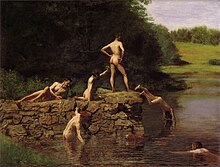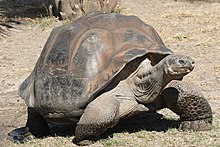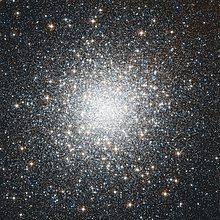Portal:Science
Science portal

Science is a systematic discipline that builds and organises knowledge in the form of testable hypotheses and predictions about the universe. Modern science is typically divided into two or three major branches: the natural sciences (e.g., physics, chemistry, and biology), which study the physical world; and the behavioural sciences (e.g., economics, psychology, and sociology), which study individuals and societies. The formal sciences (e.g., logic, mathematics, and theoretical computer science), which study formal systems governed by axioms and rules, are sometimes described as being sciences as well; however, they are often regarded as a separate field because they rely on deductive reasoning instead of the scientific method or empirical evidence as their main methodology. Applied sciences are disciplines that use scientific knowledge for practical purposes, such as engineering and medicine. (Full article...)
Featured article -
Featured pictures
Vital articles
Life is a quality that distinguishes matter that has biological processes, such as signaling and self-sustaining processes, from matter that does not. It is defined descriptively by the capacity for homeostasis, organisation, metabolism, growth, adaptation, response to stimuli, and reproduction. All life over time eventually reaches a state of death, and none is immortal. Many philosophical definitions of living systems have been proposed, such as self-organizing systems. Viruses in particular make definition difficult as they replicate only in host cells. Life exists all over the Earth in air, water, and soil, with many ecosystems forming the biosphere. Some of these are harsh environments occupied only by extremophiles. (Full article...)
Did you know...
- ... that science fiction authors who want to avoid the paradoxes associated with time travel may instead write about time viewers?
- ... that Guy Parmelin, now President of Switzerland, opened the study program of cyber security of the Lucerne School of Information Technology in 2018?
- ... that Brazilian computer science researcher and internet pioneer Tadao Takahashi negotiated with drug lords to install internet equipment in his country?
- ... that Charlie Jane Anders wrote preferred pronouns into her science fiction novel Victories Greater Than Death because she thought that alien gender would be unclear to humans?
- ... that the Data Colada bloggers drew attention to the replication crisis by exposing faulty social science research?
- ... that the concept of hyperspace, primarily known through its use in science fiction, originated from and is still occasionally used in scholarly works?
Get involved
| This portal needs to be updated. Please help update this portal to reflect recent events or newly available information. Relevant discussion may be found on the talk page. |

|

|
Science News
- 21 November 2024 –
- The European Southern Observatory announces that its astronomers in Chile capture the first close-up image of a star outside the Milky Way. (The New York Times)
- 20 November 2024 – Discoveries of exoplanets
- In a study published by the Nature journal, astronomers announce the discovery of IRAS 04125+2902 b, a newborn exoplanet. The discovery was made by Madyson Barber, a graduate student at the University of North Carolina at Chapel Hill. (Nature) (ABC News)
- 5 November 2024 –
- Researchers at Kyoto University in Japan launch LignoSat, the world's first wooden satellite constructed without screws or glue, into space. It will orbit Earth for six months. (DW)
- 10 October 2024 –
- In its annual Living Planet report, the World Wildlife Fund estimates that wild populations of animal species have decreased over 70% since 1970, with some high-biodiversity areas seeing up to 95% declines. (DW)
- 10 October 2024 – Tomb of Christopher Columbus
- Researchers from the University of Granada confirm that bones lying in the Seville Cathedral in Seville, Andalusia, Spain, belonged to Christopher Columbus. (ABC Spain)
- 9 October 2024 – Nobel Prize in Chemistry
- This year's Nobel Prize in Chemistry is jointly awarded to British computer scientist Demis Hassabis and American chemist John M. Jumper for their work on protein structure prediction, and to American biochemist and computational biologist David Baker for his work on computational protein design. (The New York Times) (Nobel Prize)

































































